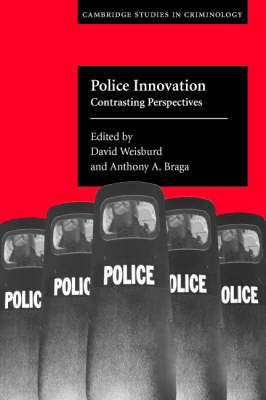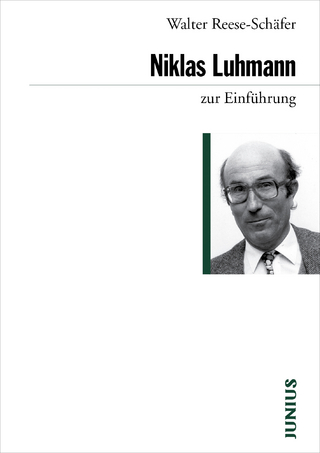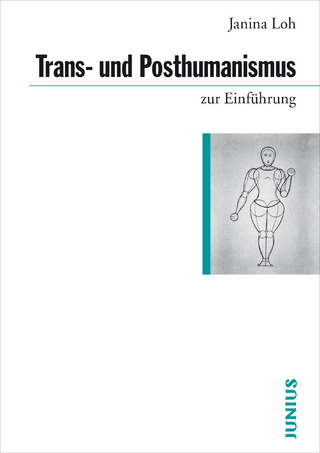
Police Innovation
Cambridge University Press (Verlag)
978-0-521-54483-2 (ISBN)
- Titel erscheint in neuer Auflage
- Artikel merken
Over the last three decades American policing has gone through a period of significant change and innovation. In what is a relatively short historical time frame the police began to reconsider their fundamental mission, the nature of the core strategies of policing, and the character of their relationships with the communities that they serve. This volume brings together leading police scholars to examine eight major innovations which emerged during this period: community policing, broken windows policing, problem oriented policing, pulling levers policing, third party policing, hot spots policing, Compstat and evidence-based policing. Including advocates and critics of each of the eight police innovations, this comprehensive book assesses the evidence on impacts of police innovation on crime and public safety, the extent of the implementation of these new approaches in police departments, and the dilemmas these approaches have created for police management. This book will appeal to students, scholars and researchers.
David Weisburd is Walter E. Mayer Professor of Law and Criminal Justice at the Hebrew University Law School in Jerusalem, and Professor of Criminology and Criminal Justice at the University of Maryland, College Park. He is the author or editor of eleven books and more than sixty scientific articles that cover a wide range of criminal justice topics. Anthony A. Braga is Senior Research Associate in the Program in Criminal Justice Policy and Management at Harvard University's John F. Kennedy School of Government. His research focuses on working with criminal justice agencies to develop crime prevention strategies to deal with gang violence, illegal firearms markets, and violent crime hot spots.
1. Introduction David Weisburd; Part I. Community Policing: 2. The promise of community policing Wesley G. Skogan; 3. Community policing: a skeptical view Stephen Mastrofski; Part II. Broken Windows: 4. Of 'Broken Windows' criminology and criminal justice William H. Sousa and George L. Kelling; 5. Incivilities reduction policing, zero tolerance, and the retreat from coproduction: weak foundations and strong pressures Ralph B. Taylor; Part III. Problem-Oriented Policing: 6. Science, values and problem-oriented policing: why problem-oriented policing? John E. Eck; 7. Problem-oriented policing: the disconnect between principles and practice Anthony A. Braga and David Weisburd; Part IV. Pulling Levers Policing: 8. Old wine in new bottles: policing and the lessons of pulling levers David M. Kennedy; 9. Partnership, accountability, and innovation: clarifying Boston's experience with pulling levers Anthony A. Braga and Christopher Winship; Part V. Third Party Policing: 10. The case for third party policing Lorraine Mazerolle and Janet Ransley; 11. Third party policing: a critical view Tracey L. Meares; Part VI. Hot Spots Policing: 12. Hot spots policing as a model for police innovation David Weisburd and Anthony A. Braga; 13. The limits of hot spots policing Dennis P. Rosenbaum; Part VII. Compstat: 14. Compstat's innovation Eli B. Silverman; 15. Changing everything so that everything can remain the same: Compstat and American policing David Weisburd, Stephen D. Mastrofski, James J. Willis and Rosann Greenspan; Part VIII. Evidence-Based Policing: 16. Evidence-based policing for crime prevention Brandon C. Welsh; 17. Improving police through expertise, experience and experiments Mark H. Moore; Conclusion.
| Erscheint lt. Verlag | 4.5.2006 |
|---|---|
| Reihe/Serie | Cambridge Studies in Criminology |
| Zusatzinfo | 6 Tables, unspecified; 4 Line drawings, unspecified |
| Verlagsort | Cambridge |
| Sprache | englisch |
| Maße | 152 x 229 mm |
| Gewicht | 570 g |
| Themenwelt | Sozialwissenschaften ► Soziologie |
| ISBN-10 | 0-521-54483-1 / 0521544831 |
| ISBN-13 | 978-0-521-54483-2 / 9780521544832 |
| Zustand | Neuware |
| Haben Sie eine Frage zum Produkt? |
aus dem Bereich



